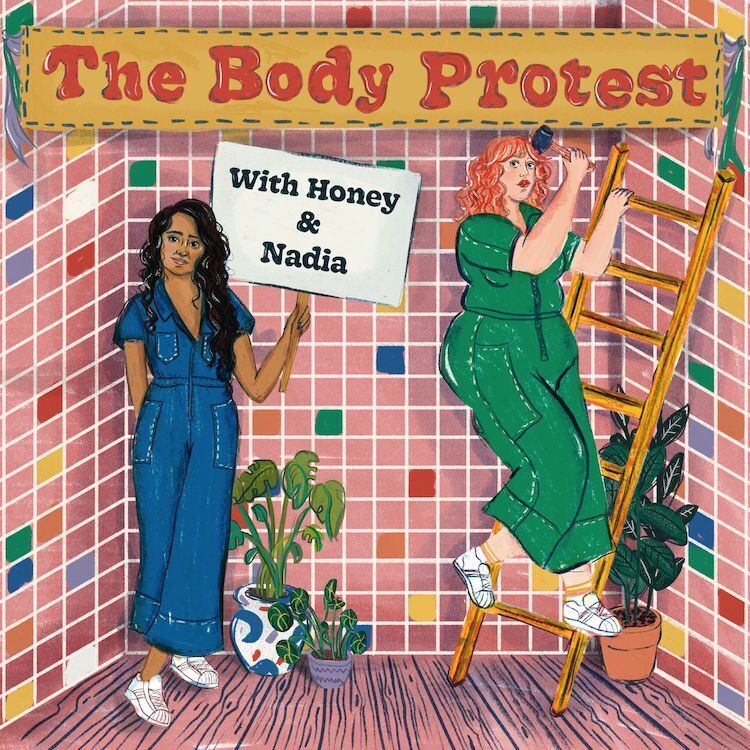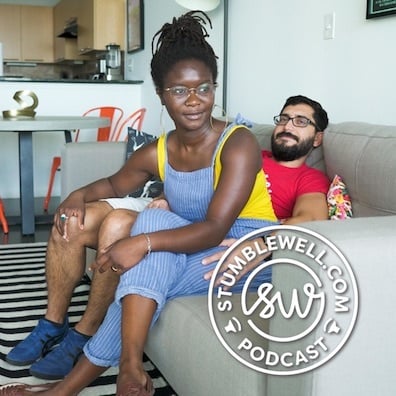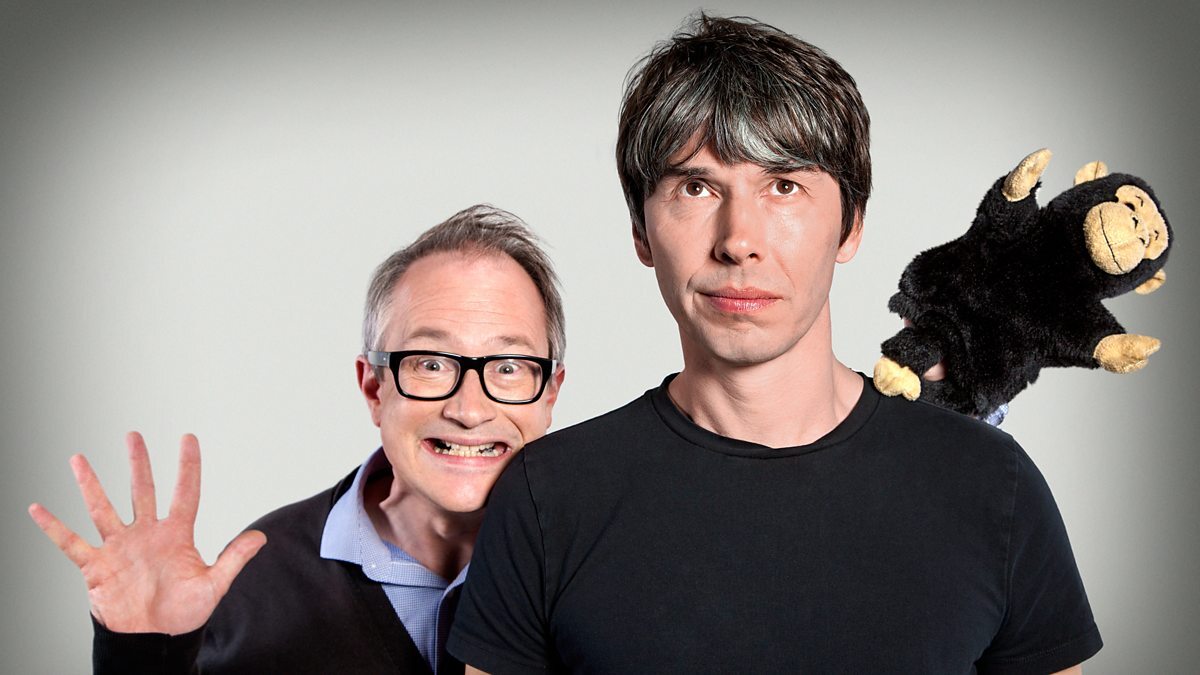If you’re just starting a podcast, one of the most important questions to ask yourself is whether to have a co-host. To go it alone, or have someone there by your side. This decision can make or break your podcast, so it’s worth putting some thought into.
So how do you know whether your show needs a co-host? And if you do want one, how do you pick someone who’s right for you? In this post we’ll cover everything you need to know: why you might want a co-host, the pros and cons, how to pick the ideal partner, and master the recording process to capture captivating on-air chemistry.
Understanding the Dynamics of Co-Hosting
Starting a podcast on your own can be pretty daunting. There’s no one to bounce ideas off, or help you figure out whether you’re doing this whole podcasting thing right. All you have to rely on is yourself. And if things get tough? You have to push through the hard times by yourself.
Co-hosting can keep you accountable and give you an extra pool of ideas and talent to draw from.
Adding a co-host to the mix can sometimes make things easier. You’ve got someone to reassure and support you. You’ve got two pools of ideas and talent to draw from. And it’s a lot easier to motivate yourself to keep on top of the work if there’s someone else relying on you too.Co-hosting can help your podcast reach new heights - but it’s not for everyone. It’s got its pros and cons. Let’s go through some of them to help you figure out whether co-hosting is right for your podcast.
The Pros of Co-Hosting
Here are 5 of the most common reasons podcasters decide to run a co-hosted show:
You Each Bring Different Perspectives
You might have a lot to say about a topic, but at the end of the day, you’re only one person. You can only offer one perspective, however unique it might be. But a co-host might have a wildly different background to you, giving them a whole new angle to approach the topics you discuss on your show.
The Body Protest shows this happening in action. It’s hosted by Nadia Craddock, a body image researcher, and Honey Ross, a plus sized writer and activist. Nadia has all the scientific knowledge on her side, whereas Honey brings her real life experiences to make everything a bit more human and relatable. They both have something different to add to the podcast.

Conversations Are Naturally Engaging
It’s hard to make a one-person monologue engaging. If you’ve ever listened to a lecture that almost put you to sleep, you’ll know what it’s like to be on the receiving end. Not good. But adding just one more voice to make it a conversation rather than a monologue can make a world of difference.
It’s way easier to sound like a real human being when there’s someone else there to bounce off and talk with. Going it alone means putting real effort into not sounding like a robot. Having a co-host can help with that, especially if you’re new to podcasting and not yet used to sounding lively when the mic is one.
You Can Motivate Each Other
Building up a podcast audience takes time and patience. A lot of patience. So you might want someone by your side to keep you going on those days you feel like giving up (it happens to all podcasters!). You’re a lot more likely to keep on top of your schedule if there’s someone else there pushing you to do it.
Bring Two Sets of Skills to the Table
You don’t have to do everything yourself. That means you can both play to your strengths. So if you’re amazing at editing but hate social media marketing, it would make sense to find a co-host who loves crafting compelling posts.
You can use your differences in personality to your advantage too. If one of you is an extrovert who loves taking the lead, and one of you is more quiet but great at listening, you can complement each other well during episodes.
Co-Hosting Makes Podcasting More Fun
Co-hosting can make podcasting into a social activity. You can give genuine reactions to all the anecdotes on the podcast, and you might even get a few real laughs in. Listeners can always tell whether you’re having a good time, and they’re much more likely to enjoy the podcast if you are.
Listeners can automatically sense whether you’re having a good time.
One example of this working is Dear Hank and John. You can really tell that the two hosts just love spending time with each other, and that makes the podcast genuinely fun to listen to.
The Cons of Co-Hosting
Like everything else in life, co-hosting has its pitfalls too. Here are some things to consider before you commit:
Success Depends on Who Your Co-Host Is
We’ve all worked on at least one project that’s been like hell because of the people we were forced to work with. Whether you love it or hate it depends on team dynamics. Podcasting is the same. If you gel really well, you’ll likely have a great time. But if you end up with someone who just doesn’t fit with the way you like to work, sooner or later it’s probably going to fall apart. That’s why it’s worth putting some real thought into who you want to be your co-host (more on that later).
You Might Lose Some Creative Control
Co-hosting means you both have a say in how your podcast turns out. That means you might have to compromise every now and then to both be happy with the show.
If you’re not totally sure on what your podcast will look like yet, and you’re up for experimenting, then having a co-host can be brilliant. But if you’ve already got a clear vision of what you want, be prepared to persuade your co-host of your ideas. If you want someone to go along with everything you’ve planned already, you’ve got to persuade them to buy into it too.
You Still Have to Prep
This is by far the biggest risk of co-hosting. And it’s something which trips up a lot of first time podcasters. It’s tempting to treat your recording sessions like catch-ups for you and your co-hosts. But you can’t just turn on the mic and see what happens without any prep. Your chemistry won’t get you through everything.
Good chemistry isn’t a substitute for good episode prep.
If you haven’t put any thought into the actual content of the show, your audience will be able to tell straight away. Having good banter with your co-hosts is great, but it’s no substitute for real content. This doesn’t mean you have to put hours and hours of work into detailed research. But you should have an idea of what you’re talking about before you start recording. That means some prep work is essential, whether you’ve got a co-host or not.
Talking Over Each Other Can Cause Problems
When you’re in conversation, it’s normal to talk over each other a bit and interrupt when you have a question or something to add. In person, this feels completely natural. But if you’re hearing people do that in a podcast, it’s very difficult to listen to. Overlapping sentences means you can’t always make out what everyone’s saying, and everything starts to sound like a bit of a mess. You’ve always got to be conscious of what the listening experience will be like for your audience.
What to Look For in a Podcast Co-Host
If you’ve decided a co-host is right for your show, how do you go about finding the perfect partner? Here are some key things to keep in mind:
Someone Who Cares Deeply About the Topic
Whether your show is about knitting or biscuits or extreme sports, your co-host has to be super into the topic. This is what will motivate them to keep going when the initial novelty of podcasting wears off.
Someone You Have Chemistry With
You make a good team only if you have some chemistry with each other. If you’re not already friends, this can get better over time while you get to know each other, so don’t worry if it doesn’t feel completely effortless at first. But if all you have is stilted conversations and awkward silences, you’re probably not the best match.
Someone Who Can Offer a Different Perspective
It’s easy to think someone as similar as possible to you will make the best match. But often, it’s the differences between you that really make the relationship work. They make the podcast much more interesting and varied for your audience.
Often, it’s the differences between co-hosts that really makes the relationship work.
The Infinite Monkey Cage juxtaposes physicist Brian Cox with comedian Robin Ince to make a podcast that’s funny and fascinating at the same time. That’s only possible with both hosts. They each bring their own expertise, and the magic only happens when you combine them together.
Someone Reliable
No matter how enthusiastic and skilled someone is, if they’re not willing to put the work in, they’re not the right person. You need someone who has enough free time to commit to the podcast. How much time that involves is up to you and your podcast, but make sure you’re clear on what it is from the outset.
Tips for Working & Recording With a Co-Host
Podcasting isn’t easy. And adding another person into the mix adds an additional layer of complexity. So here are a few tips to get the most out of your relationship with your co-host (and keep arguments to a minimum!):
1. Define Your Roles
Before you start working together, have a conversation about how much work each of you is committing to. This doesn’t have to be set in stone. But having a starting point to go from means you’re both on the same page about what’s expected. That way no one has to resent anyone for not doing enough work, or for taking all the control and doing too much.
2. Be Open & Honest With Each Other
Every relationship needs open and honest communication, and co-hosting is no different. If you don’t like the way the podcast is going, you have an idea to make it better, or you just want to see how your co-host is doing - don’t be afraid to bring it up.
3. Use Hand Signals
Normally in conversation we don’t mind interrupting and talking over each other - we do it so often you probably don’t even notice it. But on a podcast that’s going to sound messy and chaotic. Hand signals can help you avoid that.
Hand signals allow you to create a smooth and seamless listening experience.
When your co-host is speaking and you think of something to add, simply raise your hand to let them know. They can nod when they’re done talking and ready for you to hop in. This way there’s no awkward pauses while you wait to see if they’re done, but you also don’t end up accidentally talking over them either. Feel free to make up your own hand signals too - anything from ‘time to wrap up’ to ‘your turn to speak now’ can make the recording process much smoother. It’ll sound effortless to your listeners, like you’re so in sync!
4. Disagree Respectfully
If you disagree with your co-host about a topic, it’s easy to brush over it to get to the stuff you agree on. Or you might end up turning your disagreement into a huge argument. But your audience is interested in what can come from your debates - don’t shy away from them. Instead, listen to each other’s points of view and try to see where they’re coming from. That doesn’t mean you have to change your mind (or change your co-host’s mind), just figure out why you disagree with each other.
A great example of a show that does this is the StumbleWell Podcast. The hosts, Hallease and Chris, are not afraid to disagree with each other and have a real discussion. In fact, the points they disagree on are often what makes their show so interesting. Check out their episode on race to see this in action. Hallease is a Black woman while Chris passes as white, so they really have to listen to each other to understand each others’ experiences.

5. Genuinely Listen to Each Other
The most important part of co-hosting is listening to each other. This sounds obvious, but it’s surprising how often you might forget it. You can easily fall into spending all your attention on what you’re going to say next, instead of actually listening to what the other person is saying. Do you best to tune into what your co-host is saying and respond naturally. This is a skill that gets much easier with practice!
In Summary…
Co-hosting has its pros and cons, but if you choose your co-host well, it can be the thing that makes your podcast stand out from the competition. You’ll have someone to bounce ideas off, it’ll be easier to motivate yourself to get the work done, and your show will benefit from two sets of skills and ideas.
You’ve got to pick the right person though. They have to be dedicated to your show, be good at listening, and you need someone who complements you well. Once you’ve got that, all you’ve got to do is remember to always communicate with each other. Get that down and you’re well on your way to both making each other sound better. That’s the key to a great co-hosting podcast - you both lift each other up.
For our full, comprehensive guide on how to start a podcast, click here.











